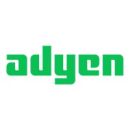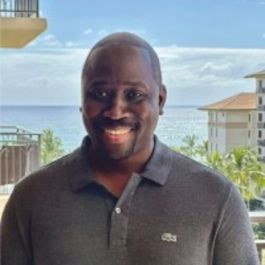“The zone” is not a place one can pinpoint on a map. There is no universal set of conditions or requirements that grant entry. It’s personal, and the rituals and methods that each person relies on can vary drastically.
Classical pianist Glenn Gould would soak his hands in warm water before concerts to relax and focus. Meanwhile, Hugh Jackman plunges into ice-cold water to reinvigorate his senses before Broadway performances. Some people listen to heavy metal to tune out the world as they work, some listen to jazz and others can’t listen to anything at all. These rituals and environmental shifts, whether based on habit, superstition or scientific principles, are an innately personal affair to reach an inward destination.
Just as performers prepare for the spotlight, software engineers gear up for their version of showtime.
At the core of their craft lies the challenge of solving complex problems, often under the pressure of tight deadlines. In these high-stakes moments, entering the zone becomes crucial.
In this state, code flows from the mind as effortlessly as melodies from a maestro’s fingertips. Interruptions are deflected with the grace of a seasoned actor ignoring a cough from the audience, maintaining character despite the break in illusion. This is where creativity meets logic, complex algorithms are composed and the performance of the software is perfected before the curtain rises to reveal the final product.
Software engineers from Adyen and Cisco Meraki cultivate their zones with as much care as any artist preparing for the stage, ensuring they can perform with brilliance and precision when the spotlight shines on them.
Adyen, a global financial technology platform, offers payment solutions, data insights and financial products, empowering companies like Meta, Uber and L’Oreal with the tools to achieve their goals.
What are the circumstances in which you do your best work?
To set the scene, you can expect to see me sitting somewhere in the office, wired earphones in while sipping a coffee or another drink of choice. I enjoy going into the office because I like the routine of physically getting ready in the morning, which helps me mentally prepare for the day.
When I was fully remote, I was guilty of rolling out of bed and going straight to my laptop. When I go into the office, the transition to work is gradual, and I can ease in. I also like exploring different areas in the office that give a nice change in scenery, which refreshes my mind, too.
The wired earphones are a game changer. Music aside, they serve as a visual indicator that I am “in the zone.” As someone with long hair, my wireless earbuds are easily hidden, and I find that people would come to talk to me more frequently. I enjoy talking to my teammates, and breaks are important, but not when I am in my groove. After being inspired by a colleague, I returned to old-fashioned, reliable, wired earphones so that people can visibly see when I am in focus mode.
How do you structure your day or workspace to facilitate getting into ‘the zone’ or a ‘flow state’?
Blocking focus time in my calendar and doing a little prep beforehand makes a big difference. I didn’t always block time on my calendar, but intentionally scheduling that time has helped me consistently be productive. I’m thankful we have a culture where everyone I work with respects each other’s schedules, and we are encouraged to set aside time for focus work.
On a practical side, I also like to have my workspace clean and prepped with everything I need before starting my work. This might be grabbing things like a small snack, water or coffee ahead of time to help reduce interruptions.
The last bit of prep is putting together a list of to-do’s. When my focus time arrives, I don’t want to sit and think about what I need to do, and this is all solved by having a checklist with all the tasks I need to tackle. My notes app is my best friend at work.
Preparation and rituals are going to look different for every person. Try different things and reflect to see what works for you.”
What recommendations do you have for engineers trying to find what works to help them do their best work?
My biggest recommendation is to set yourself up with a clear mind and explicit goals for your focus time. That is ultimately my recipe for getting in the zone. Preparation and rituals are going to look different for every person. Try different things and reflect to see what works for you. I know some of my colleagues thrive in loud working environments while others need to drown out the world entirely with their noise-canceling headphones.
Similar to having clear goals, I also recommend getting clear expectations on project details. Focusing will be difficult if deadlines are unclear and you can’t properly rank your work. With clear goals and expectations, you can reduce stress and focus on doing good work.
Cisco Meraki, recognized as a leader in cloud-managed IT, offers simple yet powerful solutions, aiming to enhance technological accessibility and efficiency.
What are the circumstances in which you do your best work?
My role requires that I collaborate with many people. I get several messages from colleagues across cross-functional teams every day, and it can be difficult to respond to everybody promptly. Considering this, I start each morning by responding to direct messages across various channels. Although I sometimes need to attend early meetings, I make sure to balance my meetings and time for communication appropriately.
Also, it’s helpful for me to deliberately block time on my calendar to complete tasks, respond to emails, and focus on my work. Since I work best in quiet and private spaces, I occasionally work in a private conference room when I’m at the office. I’ve also found it helpful to set a status on my Webex app that notifies others when I’m unavailable or will be slow to respond. This helps me to focus and work without interruptions. At the end of the day, I try to respond to anything I may have missed before logging off.
How do you structure your day or workspace to facilitate getting into ‘the zone’ or a ‘flow state’? Do you have rituals, tools or methods that help you access a creative mindset?
I have a few rituals that I try to implement throughout the day. First, I like to meditate each morning. Meditation helps me clear my mind and focus on a design or strategy I want to execute. It’s also important for me to take regular breaks throughout the day. I make sure to step away from my computer for lunch, take a walk or get some fresh air.
Meditation helps me clear my mind and focus on a design or strategy I want to execute.”
Additionally, organization is essential for me to get into a workflow. I do this by creating a central document that tracks each project I’m involved in. I also manage a spreadsheet that tracks the progress of projects my team is working on. This spreadsheet helps me stay updated and enables me to support my team in solving any challenges that may present themselves. Keeping a centralized document not only keeps me organized but also creates efficiencies.
What recommendations do you have for an engineer trying to find what works to help them do their best work?
I think it’s important to find what works best for you as an individual to keep track of information. Things can change quickly, and there’s a lot of information to monitor. Having an easy way to stay updated is very helpful, especially when you want to reference an action item in a meeting or bring up a topic from a discussion thread. Find the tools that work best for you to keep track of things and be able to access and share information quickly as needed.
One of the tools I’ve implemented for my team is what we call “collaboration channels.” These channels include every member of my team and the entire roster for one of our partner teams. They allow us to ask questions quickly and get a response while providing wide visibility and transparency. This can help minimize the time and expense of live meetings to discuss some topics by fostering asynchronous discussion.
Communication and collaboration are both key to success. Finding ways to be efficient and effective communicators can make all the difference in keeping a project on track and on the desired timeline or allowing for pivoting when needed.









